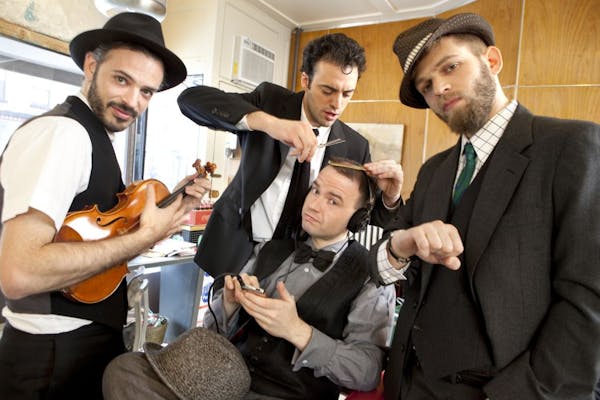It's not easy to see Philip Glass, who still has something of a countercultural aura, as an elder of American music. But the prolific composer, whose work manages to marry edgy experimentalism with commercial savvy, turns 75 in January, amid much hoopla. Sunday's all-Glass concert at the Cedar Cultural Center, played by the chic but exacting string quartet Brooklyn Rider, felt like an anticipation of the Glass anniversary year, offering a timely reminder that this long-iconic musician is indeed worth celebrating.
Glass' career is a biographer's paradise. Born in Baltimore, he studied philosophy in Chicago, was schooled in neo-classicism at Juilliard and then decamped to Paris, where he worked with the imperious Nadia Boulanger and with sitar player Ravi Shankar, a major influence.
Back in New York, he did odd jobs, driving a taxi and (with fellow composer Steve Reich) schlepping furniture while forging some of the seminal scores of early minimalism. (An oft-told story: A couple got into Glass' cab debating the merits of his "Einstein on the Beach," which had just been staged at the Metropolitan Opera. Glass introduced himself as the composer. His passengers didn't believe him.)
Glass' music for string quartet, sober and relatively unrepetitive, seems to stand apart from the bulk of his output. The composer acknowledges the medium's mystique: "It's almost," he told writer Mark Swed, "as if we say we're going to write a string quartet, we take a deep breath, and we wade in to try to write the most serious, significant piece that we can."
Brooklyn Rider -- violinists Johnny Gandelsman and Colin Jacobsen, violist Nicholas Cords, cellist (and Colin's brother) Eric Jacobsen -- lately has recorded all five of Glass' numbered string quartets on the composer's own Orange Mountain label. Their immersion in this repertoire was evident in Sunday's engrossing performances of Nos. 2-4 and of an affecting Suite (in its Minnesota premiere) from the 1997 film "Bent," although the immediacy and physicality of their playing was somewhat vitiated by inept and needless amplification.
Most arresting, to my ear, was an edge-of-the-seat account of the terse Quartet No. 2, written for a dramatization of Samuel Beckett's novella "Company." Glass' music has the austere beauty of Beckett's prose; in the Brooklynites' hands, it was unexpectedly reminiscent of late Brahms.

This retired journalist changed professional wrestling from Mankato

All-Metro Sports Awards: Here are the 2023 winners

